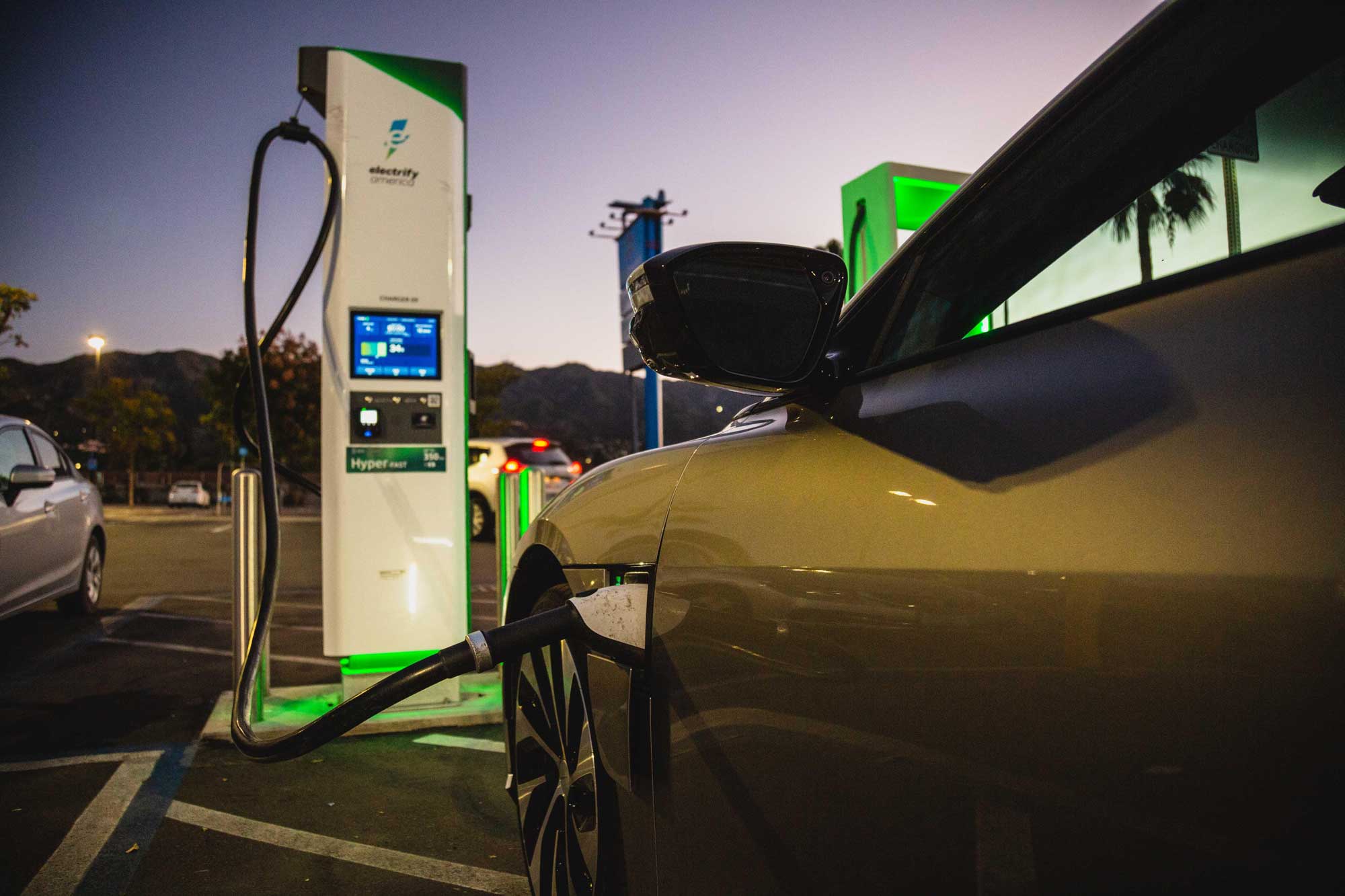Costs of Electric Cars vs. Gas Cars: What to Consider When Buying
From fuel to insurance, choosing an EV over a gas-powered vehicle could lead to lifetime savings.
 Manuel Carrillo III | Capital One
Manuel Carrillo III | Capital One
Choosing between an electric vehicle (EV) and a gas-powered vehicle in today's car market can feel like a challenge. If you're leaning toward an EV, there are cost implications of going electric that can be essential to consider.
While EVs can provide maintenance and fuel savings across their overall lifespan, the initial upfront purchasing costs may push the investment outside of your budget. However, when factoring in incentives and future savings, an EV could still be the more economical option in the long run.
Sales Cost of Electric Car vs. Gas
The gap between EV prices and the rest of the industry could be closing. According to data site Cox Automotive, the average new EV sales price was about $52,000 in November 2023. This was only 8.5% higher than the overall industry average of about $48,000. Compared to even a year before, the cost difference between EVs and internal-combustion engine (ICE) vehicles has dropped.
While there are more affordable EV options — such as the Chevrolet Bolt that starts at about $27,000 — it's important to also consider the true costs associated with making the switch to electric.
Factoring in EV Incentives
When considering state and federal EV incentives, your electric car may end up costing less than a gas-powered alternative. In addition to incentives that cut down on the initial purchasing costs, you could also save on other upfront expenses such as charging stations.
Your state may offer perks for going electric, and your potential EV could qualify for federal incentives to give you a clearer picture of actual costs after factoring in savings.
Difference in Fuel Costs for EV vs. ICE Vehicles
One of the key benefits to buying an EV versus a gas-fueled vehicle is that charging typically costs less than gas. Based on estimates by the Department of Energy, charging your EV at home could cost you around $60 per month if you drive an average 1,124 miles. To fuel a gas-powered car, you could pay more than double that price, depending on your average mileage, fuel efficiency, and local gas costs.
However, this is contingent on if you charge at home. Public charging stations can cost between $0.30 and $0.60 per kilowatt-hour. If you rely on public charging, your fueling costs may be much closer to those of a gas vehicle.
While charging your EV at home may be one of the easiest ways to save over time, installing a charger can be a hefty upfront expense. EV home chargers can cost anywhere from $300 to $20,000 depending on the installation fees and charger type, from a Level 1 to Level 3. Additional costs, such as permits, labor, and potential modifications to your home, can also add up.
Registration and Insurance Premiums for Electric Cars vs. Gas Cars
A cost you may not consider when choosing between a gas and electric car is the yearly registration fee for each. Currently, 33 states have imposed an additional EV registration fee, with eight of those states demanding an additional $200 or more per year in fees.
Due to higher sticker prices and repair costs, you will also likely pay more for EV car insurance than for ICE vehicle coverage. However, EV insurance prices have dropped over the last two years, depending on the make and model. This decrease in insurance costs seems to correspond with the decrease in overall EV costs. That being the case, EV insurance will still cost you a little more on average than an ICE alternative.
Maintenance Costs and Frequency
Maintenance is a factor when calculating the long-term costs of a car. When comparing EVs and ICE vehicles, electric cars typically need less regular maintenance. However, in the case of an accident, your EV may cost more to repair due to a need for expensive parts from the original equipment manufacturer as well as increased labor.
According to a study by the collision repair software company
All vehicle pricing includes MSRP plus destination charges (set at the time of publication), and will be rounded to the nearest thousand.
Written by humans.
Edited by humans.
 Elliot Rieth
Elliot RiethElliot Rieth is a writer who was born and raised in Michigan, the center of the American automotive industry. With a background in the industry that spans from sales to digital marketing, Elliot has years of experience working directly with dealers and OEMs to create digital content and educate potential customers. When Elliot isn’t writing about horsepower or EVs, he can be found with his two greyhounds enjoying a new book or record.
Related articles
View more related articles